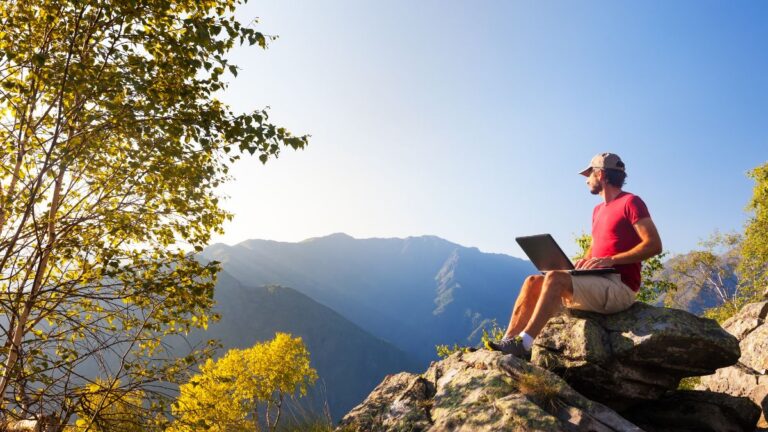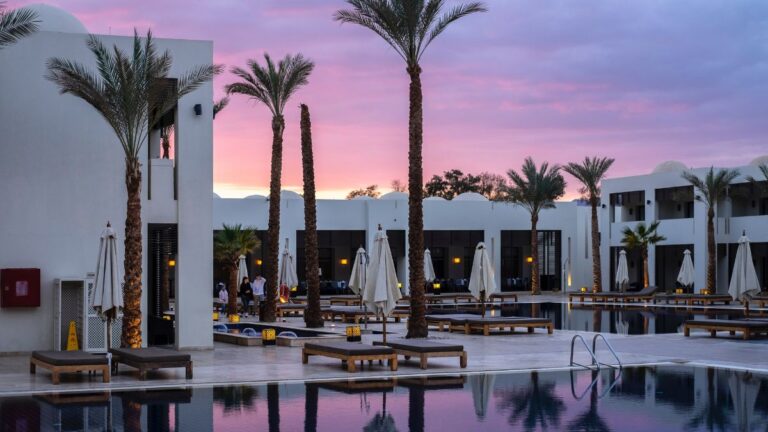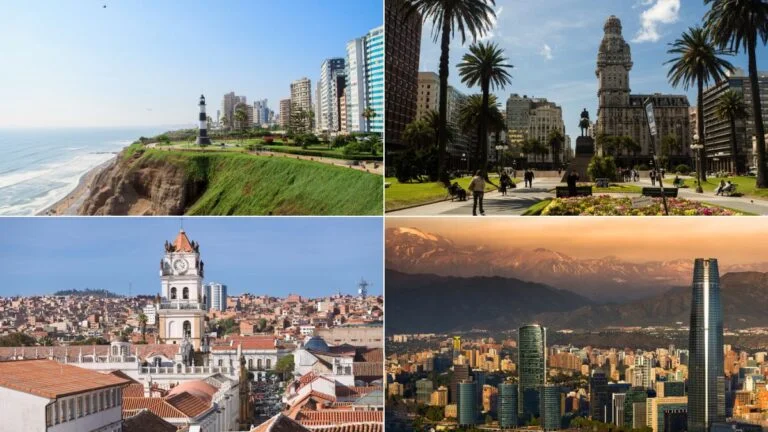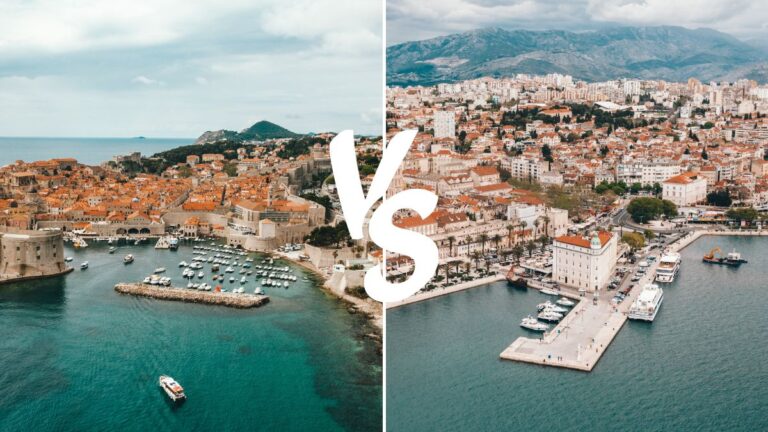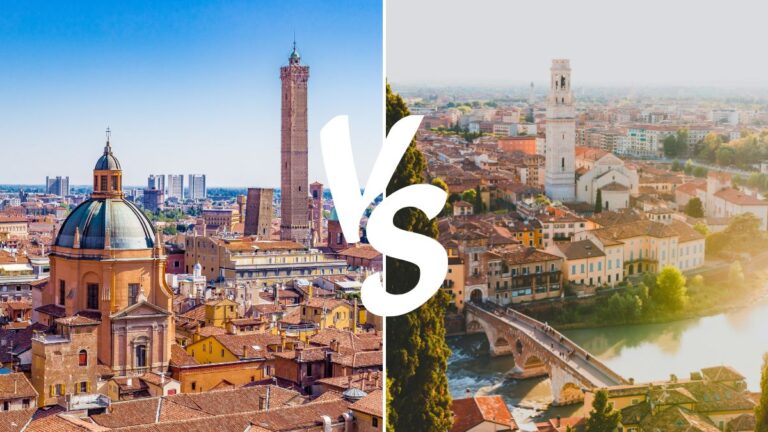50 Facts About South Africa You Need to Know Before Traveling There
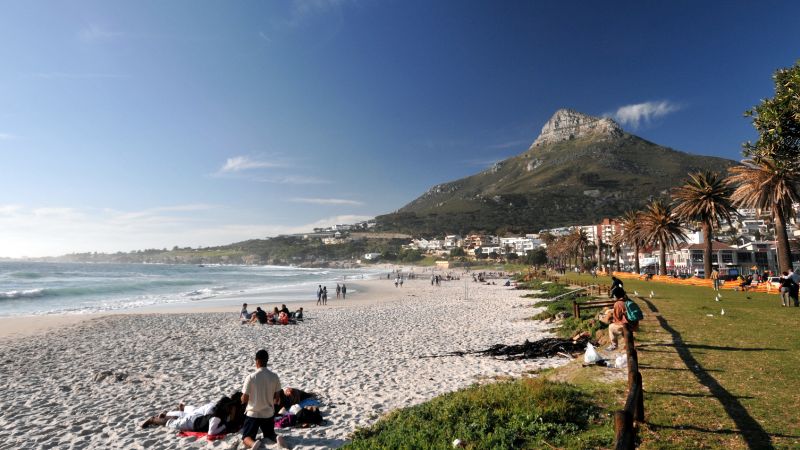
As participants in Amazon Associates and other programs, we earn from qualifying purchases. This comes at no additional cost to you. For more details, see our Affiliate Disclosure.
South Africa, often referred to as the “Rainbow Nation” for its vibrant multicultural diversity, is a country that beckons with its rich tapestry of landscapes, history, and cultures. Nestled at the southernmost tip of Africa, it’s a land where you can find everything from pristine beaches to rugged mountains, and from bustling cities to expansive wilderness. Before you pack your bags and embark on a journey to this enchanting country, there are some fascinating facts you should know. These insights not only prepare you for the diverse experiences you’ll encounter but also deepen your appreciation for the nation’s complex heritage and natural beauty. So, whether you’re a first-time visitor or a seasoned traveller, here are 50 facts about South Africa you need to know before traveling there.
1. The World’s Longest Wine Route
The Route 62 wine route is not only a vital artery through the Western Cape’s wine region but also holds the title of the world’s longest wine route. Spanning over 850 kilometers, it offers an extensive journey through breathtaking landscapes, connecting Wellington, Tulbagh, Worcester, Robertson, and the Klein Karoo, all the while providing access to a myriad of wineries. This route showcases the diversity and quality of South African wine, making it a must-visit for enthusiasts and connoisseurs alike.
2. Home to the Oldest Meteor Scar
The Vredefort Dome, located near the town of Vredefort in South Africa’s Free State, is the site of the world’s oldest and largest known impact crater. Formed over two billion years ago when a meteorite around 10 kilometers in diameter collided with Earth, this UNESCO World Heritage Site spans about 300 kilometers, offering a unique glimpse into our planet’s ancient geological history.
3. The Cape Floral Kingdom
The Cape Floral Kingdom, recognized as a UNESCO World Heritage Site, is the smallest yet richest of the world’s six floral kingdoms. Occupying just 0.5% of Africa’s landmass, it boasts over 9,000 plant species, 69% of which are endemic. This biodiversity hotspot, particularly noted for its fynbos vegetation, is a vibrant testament to South Africa’s unique natural heritage.
4. Birthplace of the Heart Transplant
South Africa entered the annals of medical history on December 3, 1967, when Dr. Christiaan Barnard performed the world’s first successful human-to-human heart transplant at Groote Schuur Hospital in Cape Town. This groundbreaking procedure marked a pivotal moment in medical science, showcasing the country’s contribution to global health advancements.
5. A Country of Official Languages
Reflecting its rich cultural mosaic, South Africa recognizes eleven official languages, more than any other country in the world. This linguistic diversity includes Afrikaans, English, Ndebele, Northern Sotho, Sotho, Swazi, Tsonga, Tswana, Venda, Xhosa, and Zulu, each representing the country’s varied ethnic groups and emphasizing its commitment to equality and inclusivity.
6. The World’s Largest Diamond was Found Here
In 1905, the Cullinan Diamond, the largest rough gem-quality diamond ever found, was discovered at the Premier Mine near Pretoria. Weighing an astonishing 3,106 carats, this massive diamond was later cut into several pieces, the largest of which adorn the British Crown Jewels. This discovery cemented South Africa’s status as a major player in the diamond industry.
7. Table Mountain’s Flora Diversity
Table Mountain, overlooking Cape Town, is not only iconic for its flat-topped silhouette but also for its remarkable biodiversity. It is home to over 1,500 plant species, many of which are endemic and cannot be found anywhere else in the world. This natural wonder is a focal point for conservation efforts and a paradise for nature enthusiasts.
8. South Africa’s Gold Rush Era
The discovery of gold in the Johannesburg area in 1886 sparked a gold rush that led to the establishment of South Africa’s most populous city and the heart of its mining industry. This era played a crucial role in shaping the socio-economic and political landscape of South Africa, transforming it into the most industrialized country on the continent.
9. The Great White Shark Capital
South Africa is renowned for its significant population of great white sharks, making it a premier destination for shark cage diving, especially in the waters off Gansbaai, often referred to as the “Great White Shark Capital of the World.” This thrilling activity attracts adventurers keen to observe these majestic predators up close in their natural habitat.
10. Nelson Mandela’s Legacy
Nelson Mandela, South Africa’s first black president and a Nobel Peace Prize laureate, is celebrated worldwide for his pivotal role in ending apartheid and fostering reconciliation in South Africa. His legacy of peace, equality, and justice continues to inspire not only South Africans but people around the globe, symbolizing hope and humanity’s capacity for greatness.
11. The Kruger National Park’s Wildlife
The Kruger National Park is one of Africa’s largest game reserves and a sanctuary for an impressive array of wildlife. It offers visitors the chance to encounter the “Big Five” (lion, leopard, rhinoceros, elephant, and Cape buffalo) in their natural environment, along with hundreds of other mammal species and diverse bird life, making it a cornerstone of South Africa’s ecotourism.
12. The Cultural Melting Pot
South Africa’s rich cultural diversity is a reflection of its complex history and the blending of indigenous peoples with those from Europe, Asia, and other parts of Africa. This “Rainbow Nation” celebrates a tapestry of traditions, languages, and religions, offering a vibrant cultural scene that ranges from music and dance to food and art.
13. Robben Island’s Historical Significance
Robben Island, located off the coast of Cape Town, is famed as the site where Nelson Mandela was imprisoned for 18 years during apartheid. Now a UNESCO World Heritage Site and museum, it serves as a poignant reminder of the struggle for freedom and human rights, drawing visitors from around the world to pay homage to those who fought against oppression.
14. South Africa’s Freedom Day
Celebrated annually on April 27, Freedom Day marks the anniversary of the first post-apartheid elections held in 1994, which were the first in which citizens of all races were allowed to participate. This day is a significant national holiday that commemorates the long journey towards freedom and democracy in South Africa.
15. The Advent of the World’s First Digital Laser
In a landmark achievement for science and technology, South African researchers developed the world’s first digital laser in 2013. This innovation, emerging from the Council for Scientific and Industrial Research (CSIR), represents a significant advancement in laser technology, offering new possibilities in various fields, including medicine and communications.
16. A Haven for Adventure Seekers
South Africa is a paradise for adventure enthusiasts, offering a wide array of activities ranging from safaris and shark cage diving to bungee jumping and surfing. Its diverse landscapes provide the perfect backdrop for thrilling adventures, whether in the rolling waves of the coast, the vast wilderness of its national parks, or the sheer cliffs of its mountains.
17. The Rainbow Nation’s Diverse Cuisine
South African cuisine is as diverse as its cultures, featuring influences from indigenous peoples, Dutch, French, Indian, and Malay settlers. Dishes like biltong, bobotie, and bunny chow offer a taste of this culinary diversity, making South Africa a delightful destination for food lovers seeking to explore flavors from around the world.
18. The Origins of Humankind
The Cradle of Humankind, a UNESCO World Heritage Site located just outside Johannesburg, is one of the world’s richest hominin fossil sites, providing invaluable insights into the origins of humans. Excavations here have unearthed well-preserved fossils that trace back our ancestral lineage, offering a window into our distant past.
19. The Iconic South African Braai
The braai, or South African barbecue, is more than just a way to cook food; it’s a deeply ingrained cultural tradition that brings people together. Characterized by the open-fire grilling of meats, the braai is a social event enjoyed by families and friends, reflecting the country’s spirit of unity and community.
20. The Rich Tapestry of South African Music
South Africa’s musical heritage is a reflection of its multicultural society, encompassing a wide range of genres from traditional Zulu isicathamiya and Xhosa folk music to Afrikaans boeremusiek, jazz, and kwaito. This rich musical landscape offers a vibrant soundtrack to the country’s history and contemporary life, resonating with the joys and struggles of its people.
21. The Sun City Resort
Located in the North West Province, Sun City is a luxury resort and casino complex known for its lavish hotels, world-class golf courses, and the Valley of Waves waterpark. Often referred to as Africa’s Kingdom of Pleasure, it provides a unique blend of entertainment, relaxation, and adventure, attracting visitors from all over the globe.
22. The Legend of the Big Five
The “Big Five” refers to five of Africa’s greatest wild animals: lion, leopard, rhinoceros, elephant, and Cape buffalo. Originally coined by hunters for being the most difficult animals to hunt on foot, the term now signifies the pinnacle of wildlife tourism, with the Kruger National Park and other reserves offering the opportunity to see these magnificent creatures up close.
23. South Africa’s Coal to Oil Technology
South Africa is a global leader in coal-to-liquid (CTL) technology, thanks to Sasol, a company founded in the 1950s to produce synthetic fuels and chemicals from the country’s abundant coal reserves. This innovative technology has made South Africa one of the few countries in the world that produces its own synthetic fuel, reducing its dependence on imported oil.
24. The Unique Rooibos Tea
Rooibos tea, also known as red bush tea, is a herbal tea made from the leaves of the Aspalathus linearis plant, native to South Africa’s Western Cape region. Celebrated for its health benefits and naturally sweet taste, rooibos has gained international popularity, becoming a proudly South African export.
25. The Colorful Ndebele Houses
The Ndebele people of South Africa are renowned for their vibrant, geometric artwork, most notably displayed on the exterior of their homes. These striking patterns, painted in bold, bright colors, are not only a means of artistic expression but also serve as a form of communication and identity among the Ndebele communities.
26. The Garden Route’s Natural Beauty
The Garden Route is a scenic stretch of the south-eastern coast of South Africa, famed for its verdant and diverse vegetation, picturesque lagoons and lakes, and beautiful beaches. Spanning from Mossel Bay to the Storms River, it’s a haven for nature lovers, offering outdoor activities such as hiking, bird watching, and whale watching.
27. The Kgalagadi Transfrontier Park
The Kgalagadi Transfrontier Park is a vast wildlife preserve that spans the borders of South Africa and Botswana, offering one of the most unspoiled safari experiences on the continent. Known for its red sand dunes, diverse wildlife, and the famous black-maned Kalahari lions, it’s a unique destination for those seeking solitude and connection with nature.
28. The Impact of Apartheid
Apartheid, the system of institutionalized racial segregation and discrimination that existed in South Africa from 1948 until the early 1990s, left a profound impact on the country. Its legacy is still felt today, but South Africa’s journey towards reconciliation and equality continues to be a powerful example of transformation and hope.
29. The Thriving South African Wine Industry
South Africa’s wine industry, rooted in over 350 years of winemaking history, is among the world’s oldest. With its ideal climatic conditions and diverse terroirs, the country produces a wide array of world-class wines, particularly noted for its Chenin Blanc and Pinotage, a red wine grape that is a South African specialty.
30. The Importance of Rugby and Cricket
Rugby and cricket are not just sports in South Africa; they are integral to the nation’s identity, reflecting its history, diversity, and the unifying power of sport. Major victories, such as the Rugby World Cup wins in 1995, 2007, and 2019, are celebrated as national triumphs that bring together South Africans from all walks of life.
31. The San People’s Ancient Art
The San people, indigenous inhabitants of Southern Africa, have left a rich legacy of rock art across the region. These ancient paintings and engravings, found in caves and on rock faces, are more than just art; they are a window into the San’s spiritual beliefs, daily life, and connection with nature, dating back thousands of years.
32. The Sardine Run Phenomenon
The Sardine Run is an annual migration of billions of sardines along the coast of South Africa, attracting a frenzy of predators and creating one of the world’s greatest marine spectacles. Occurring between May and July, this natural event offers an unparalleled opportunity for wildlife enthusiasts to witness the circle of life in action.
33. Boulders Beach Penguin Colony
Located near Cape Town, Boulders Beach is famous for its resident colony of African penguins. Set against the backdrop of granite boulders and crystal-clear waters, this beach provides a unique opportunity to observe these charming birds up close, in their natural habitat, making it a must-visit for animal lovers.
34. The Otter Trail – A Hiker’s Paradise
The Otter Trail, running through the Garden Route National Park, is one of South Africa’s most famous hiking trails. Spanning 45 kilometers along the coast, it offers hikers stunning views of the ocean, forests, rivers, and waterfalls, over a five-day trek that ranks as one of the world’s best hiking experiences.
35. The Gold of Witwatersrand
The Witwatersrand Basin is the world’s largest gold-producing area, with the Johannesburg region at its heart. The discovery of gold here in 1886 led to the Witwatersrand Gold Rush, shaping the development of Johannesburg and South Africa’s economy. Today, it remains a significant part of the country’s mining industry.
36. The Durban July Horse Race
The Durban July is South Africa’s premier horse racing event, held annually at the Greyville Racecourse in Durban. This glamorous event, dating back to 1897, attracts racing enthusiasts and fashionistas alike, showcasing the country’s passion for horse racing and its flair for fashion and celebration.
37. The Zulu Nation
The Zulu nation is the largest ethnic group in South Africa, with a rich history and a profound impact on the country’s cultural landscape. Known for their warrior spirit, traditional dances, and crafts, the Zulu people continue to celebrate their heritage, contributing to South Africa’s diverse cultural tapestry.
38. The Sophiatown Cultural Renaissance
Sophiatown, a suburb of Johannesburg, was a vibrant center of culture, jazz, and politics until its residents were forcibly removed during apartheid. Today, its legacy of resistance, creativity, and the Sophiatown renaissance is celebrated as a symbol of the enduring spirit and cultural richness of South Africa’s black community.
39. The Kimberly Big Hole
The Big Hole, located in Kimberley, is a massive hand-dug excavation that is a testament to the diamond rush era. Created in the search for diamonds from 1871 to 1914, it is considered the largest hole excavated by hand, and today it serves as a fascinating historical attraction, telling the story of South Africa’s diamond industry.
40. The Mponeng Gold Mine
The Mponeng gold mine, located near Johannesburg, is the world’s deepest mine, with depths reaching nearly 4 kilometers below the surface. This engineering marvel is a testament to South Africa’s mining prowess and continues to be a major producer of gold, contributing significantly to the national economy.
41. The Bloemfontein Rose Festival
Every year, Bloemfontein, known as the City of Roses, celebrates its beauty with the Bloemfontein Rose Festival. This event showcases the city’s stunning rose displays, gardens, and exhibitions, highlighting the horticultural heritage and community spirit of South Africa’s judicial capital.
42. The Battlefields of KwaZulu-Natal
The battlefields of KwaZulu-Natal bear witness to significant historical conflicts, including the Anglo-Zulu War and the battles between the Boers and the British. Today, these sites are important tourist attractions, offering insights into the turbulent history that shaped the region and the country.
43. The Afrikaans Language
Afrikaans, one of South Africa’s eleven official languages, evolved from the Dutch spoken by settlers in the 17th century. Today, it is spoken by millions of South Africans of diverse ethnic backgrounds, symbolizing the complex history and cultural fusion that characterize the nation.
44. The Great Karoo Desert
The Great Karoo is a vast semi-desert region in South Africa, known for its stark beauty, unique flora, and rich paleontological sites. Its wide-open spaces, dramatic landscapes, and clear skies offer a sense of solitude and connection with nature, making it a captivating destination for travelers.
45. The Majestic Drakensberg Mountains
The Drakensberg Mountains are South Africa’s highest range, offering breathtaking vistas, ancient rock art, and abundant flora and fauna. This UNESCO World Heritage Site is a paradise for hikers, nature enthusiasts, and anyone seeking the tranquility and majesty of the mountains.
46. The South African Rand
The South African Rand (ZAR) is the country’s currency, introduced in 1961 when South Africa became a republic. Its name derives from the Witwatersrand, the ridge upon which Johannesburg is built and where most of South Africa’s gold deposits were found, reflecting the historical importance of gold to the country’s economy.
47. The Johannesburg Skyline
Johannesburg’s skyline is a mix of modern skyscrapers and historic buildings, reflecting the city’s evolution from a gold-rush tented camp to the economic powerhouse of Africa. The Carlton Centre, standing as Africa’s tallest building, offers panoramic views of this dynamic urban landscape.
48. The Constitutional Court’s Role in Democracy
South Africa’s Constitutional Court, established in 1994, plays a crucial role in the country’s democracy, safeguarding human rights and the rule of law. Located in Johannesburg, the court’s decisions have shaped South Africa’s post-apartheid identity, ensuring justice and equality for all citizens.
49. The Colorful Minibus Taxis
Minibus taxis are a ubiquitous sight in South Africa, serving as the main mode of transport for millions of South Africans. Despite their sometimes chaotic nature, these vehicles are a vital part of the urban landscape, reflecting the energy and diversity of South African society.
50. The Annual Soweto Marathon
The Soweto Marathon, known as “The People’s Race,” is held annually in the historic township of Soweto. This event attracts thousands of runners from around the world, celebrating the spirit of unity and resilience that characterizes Soweto and its contribution to South Africa’s freedom struggle.

